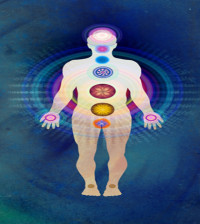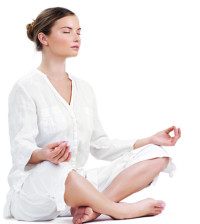- 5 Tips To Finding Peace Within Yourself
- The Do’s and Don’ts of Learning How to Accept Yourself
- How to Find Your Inner Peace and Transform Your Life
- 8 Benefits of Having an Open Mind and How to Get One
- Learn How To Be A Happier Person
- What Is The Meaning Of Life?
- Laws of Abundance – The Riches of Love and Joy
- How to Be Laid Back By Following These 9 Simple Strategies
- The meaning of confucius’ golden rule – 4 practical ways of living it
- 3 methods of unleashing the power of contentment in your life
5 Natural Remedies to Help You Sleep

Insomnia or sleeplessness affects almost every age group, most particularly adults, and more frequently women compared to men. There are several reasons for sleeplessness – it could be a symptom of another condition, such as a heart ailment – but the most common cause would be stress (whether mental, emotional or situational).
Insomnia is detrimental to health and well-being. We do not feel rested and become irritable. We have slower reflexes the next day and are more likely to make a mistake or get into an accident. We are less productive at work. And because sleeplessness compromises the immune system, we are also more vulnerable to viruses such as colds or flu.
If you’ve ever had difficulty initiating or maintaining sleep, if you spend a good part of the night staring at the ceiling, or wake up intermittently at odd hours of the night and subsequently have difficulty going back to sleep, then perhaps it’s time to look into the following natural remedies that would help you get that much-needed rest:
1. Sunlight. Basking in the early morning sun maintains the body’s circadian rhythms – the natural wake/sleep cycle. Getting adequate sunlight ensures the proper hormonal balance. Among other things, sunlight enhances the production of vitamin D; in turn, vitamin D3 triggers the production of enough melatonin to induce slumber at night. Conversely, it is best to have mellow lighting in the bedroom – rather than light as bright as day – or to forego a night lamp altogether, so that one has an environment more conducive to sleep.
2. Try a “sleep diet.” The aim is to have a diet that facilitates a good night’s sleep. Minimize or remove tea, coffee and other caffeinated drinks, as well as alcohol, from your diet. Do not eat too close to bedtime or too late at night; also, ensure that it is a light supper, with minimal fat. Have some warm milk and a banana – the vitamin B6 will enhance production of serotonin, which would aid slumber.
3. Exercise. It is recommended that you exercise at least 20-30 minutes daily. You could practice tai chi first thing in the morning and hours before sleeping at night (especially for senior citizens), or assume relaxing yoga poses, which would better ensure deep slumber. However, a mild aerobic exercise – such as walking – would also do the trick.
4. Meditation. Do you ever find yourself actively planning your day – going over a mental checklist of things to be accomplished – and worrying, when you should be sleeping? Meditation is a way to cure insomnia by tempering this propensity of the mind to wander. You learn to manage your thoughts, control your breathing, and relax your body by increments. It is believed that meditation also enhances serotonin production in the brain, providing relief from insomnia, headaches, and depression.
5. Aromatherapy. Lavender is an age-old remedy used to facilitate sleep, as its scent has a soporific effect on the body. Take a warm bath before bedtime; use lavender bath oil to soothe you. You may also keep a potpourri of lavender beneath your pillow, or better yet sprinkle lavender oil or spritz lavender spray on the bed linen. This has been proven effective in lulling insomniacs to sleep – moreover, the quality of sleep is also improved.








































You must be logged in to post a comment Login